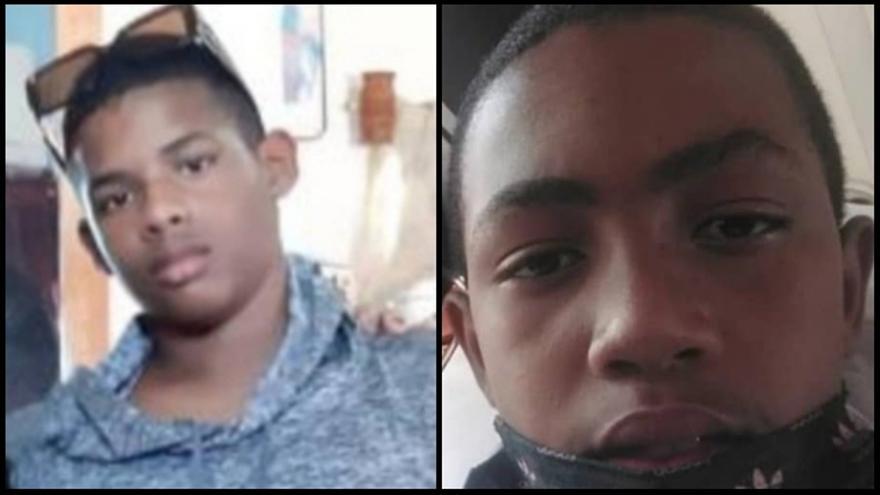
![]() 14ymedio, Havana, 29 June 2022 — The Cuban regime released three minors who had been arrested for participating in the 11J (11 July 2021) protests, and who were being held at the Comprehensive Training School in Matanzas, under the custody of the Ministry of the Interior.
14ymedio, Havana, 29 June 2022 — The Cuban regime released three minors who had been arrested for participating in the 11J (11 July 2021) protests, and who were being held at the Comprehensive Training School in Matanzas, under the custody of the Ministry of the Interior.
According to the organization Justicia11J , Eric Yoangel Héctor Plaza, 12, Maykel Michel Miranda Vega, 13, and Llenson Ensos Rizos Cabrera, 14, were released last Thursday, but the situation of at least five of the 59 minors detained in the context of the protests remains unknowned.
Justicia11J has identified these adolescents, of whom there are no reports, such as Alexander Morejón and Jennifer Simpson, both 17 years old, Leosvani Giménez and Rubén Alejandro Parra, both 15, and Yeniel González, 16.
The organization points out that detained minors “suffer even more indoctrinated education and their lifestyles impede their healthy physical, emotional and intellectual development.” He adds that detention at a young age can, in the future, lead them to be victims of stigmatization and humiliation.
In an April report, Justicia11J, together with Cubalex, established that the authorities had detained 54 minors for participating in the demonstrations, and of these, 14 were still deprived of liberty. As of that date, seven 16-year-olds were in the custody of the Ministry of the Interior. In Cuba, the penal age is established at 16 years.
The document also stated that 22 18-year-olds had been prosecuted, three of them through summary proceedings and the rest in ordinary trials accused of sedition, public disorder, sabotage and contempt.
Justicia11J points out that during the internment of these demonstrators, violations of the norms established in the Convention on the Rights of the Child, on the application of justice to minors, have been committed. They also denounce “the lack of evidence to prove guilt.”
In June, the United Nations Committee on the Rights of the Child urged the Cuban State to review the sentences imposed on minors “found guilty of exercising their right to freedom of peaceful assembly in the context of the July 2021 protests,” and mentioned its concern about complaints received about abuse and mistreatment during the detention of children and adolescents.
In the document, the Committee highlights that there were violent captures of 13-year-old children and considers the penalty opportune only after 16. In response, the Cuban Government affirmed that there are no children under 16 in prison. “Currently, there are 662 inmates between the ages of 16 and 18 in penitentiary centers. Of the ages of 16 and 17 there are 264, the rest are 18 years old,” it said.
In this context, some seven convicted minors saw their sentences reduced, after a “special analysis” by the Supreme Court of the Republic of Cuba.
____________
COLLABORATE WITH OUR WORK: The 14ymedio team is committed to practicing serious journalism that reflects Cuba’s reality in all its depth. Thank you for joining us on this long journey. We invite you to continue supporting us by becoming a member of 14ymedio now. Together we can continue transforming journalism in Cuba.
